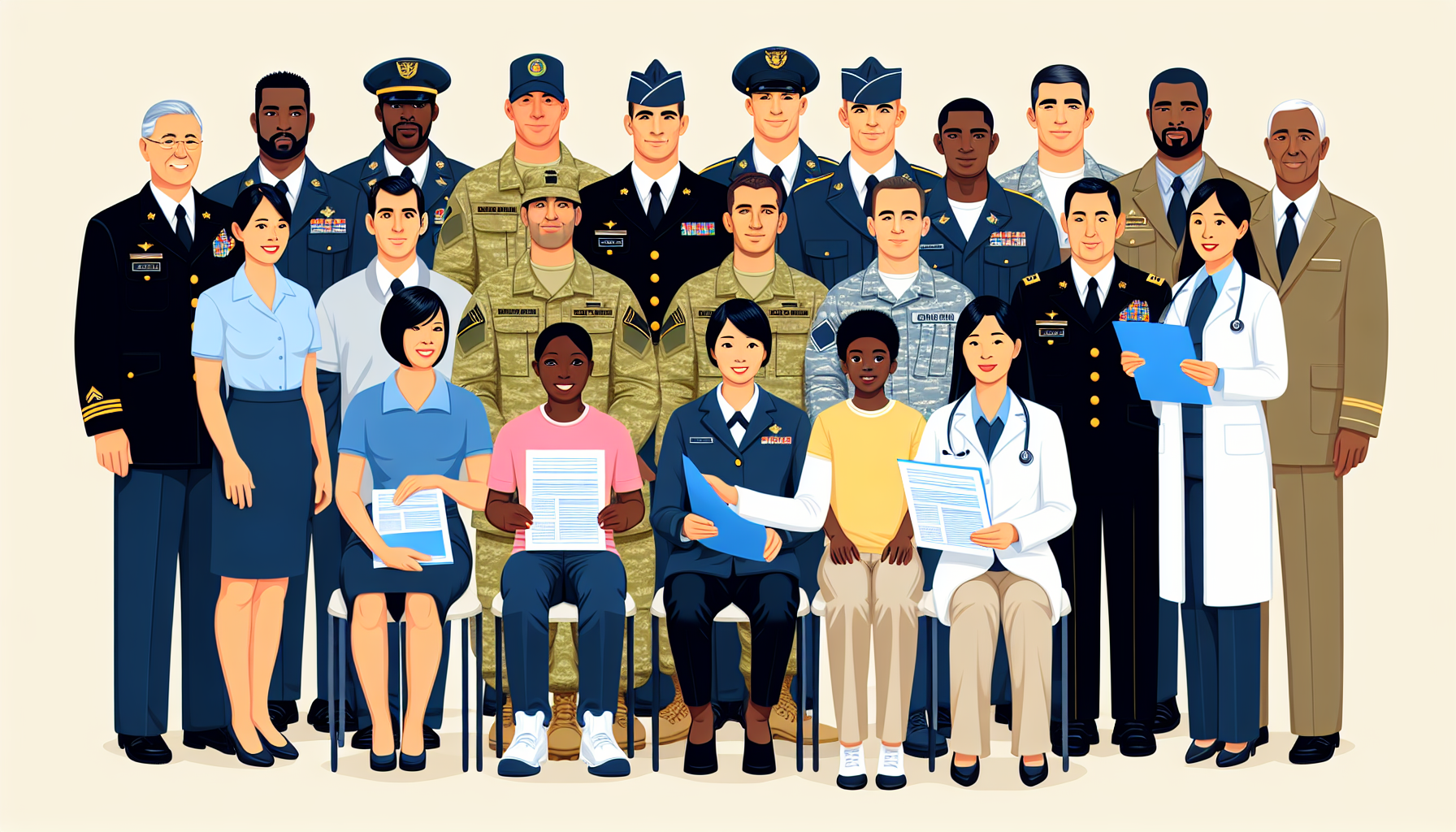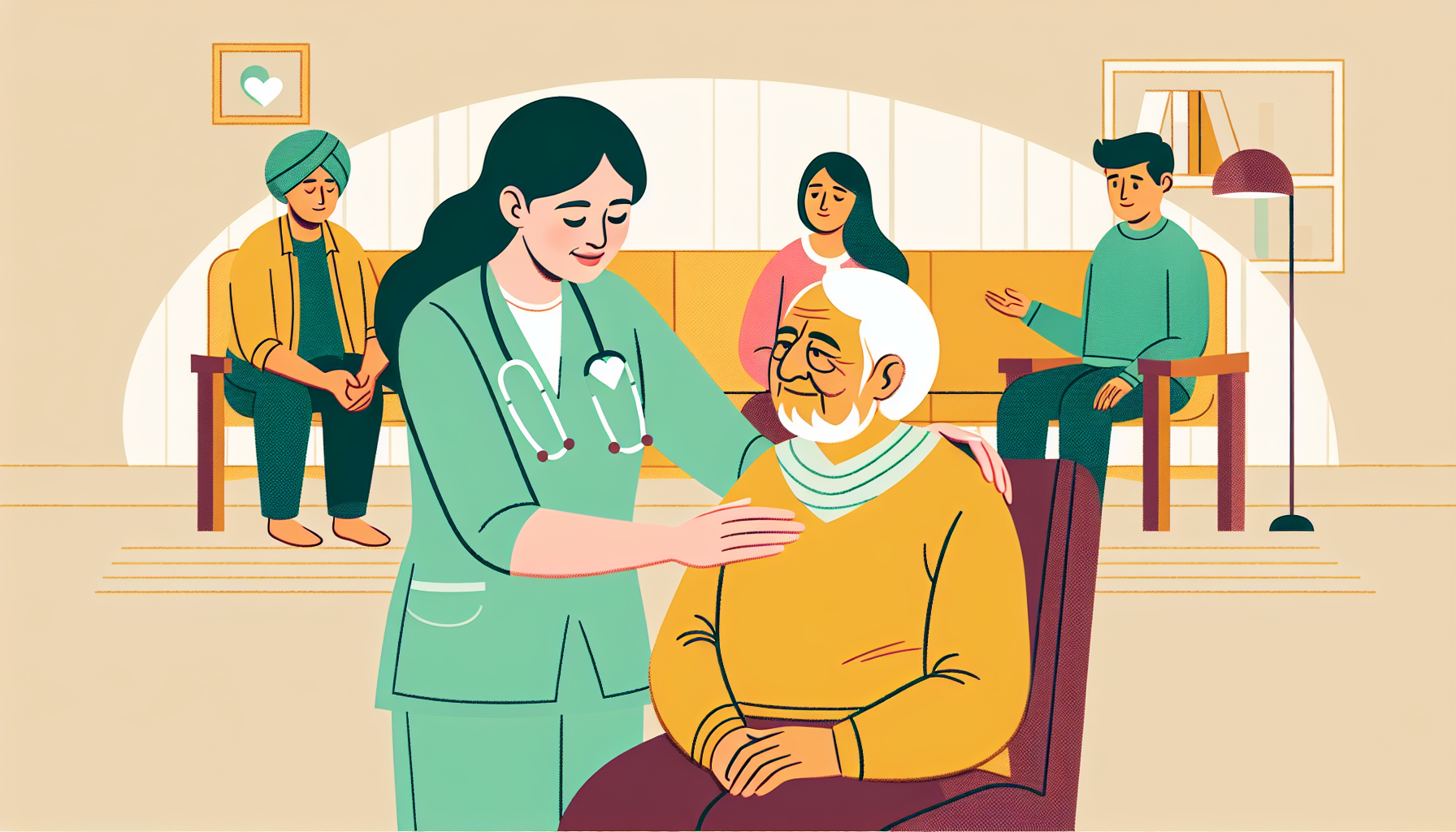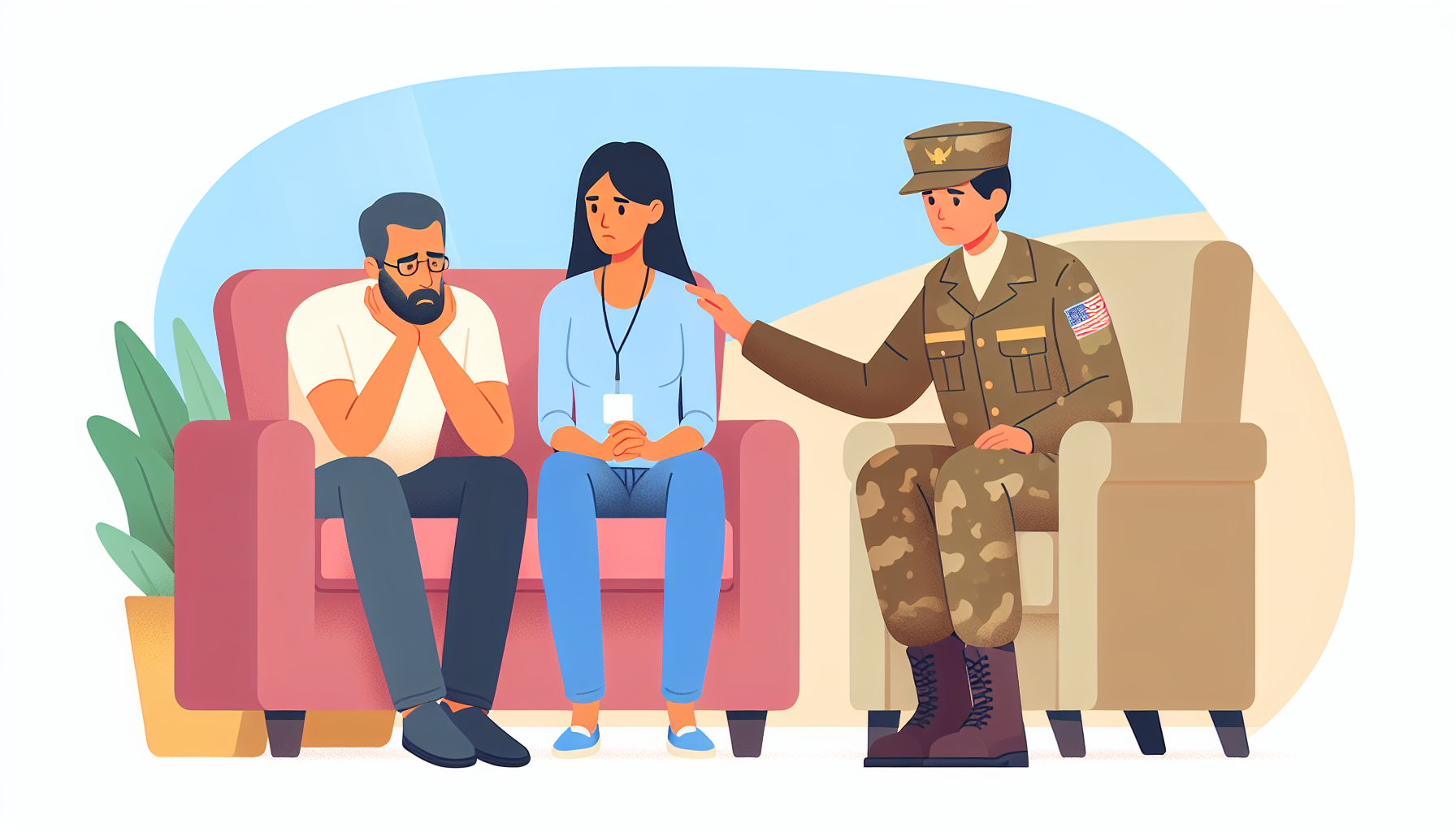Definition
The term “Military Service” refers to the time an individual spends actively serving in any branch of the United States Armed Forces. This includes active duty, reserve, and National Guard components. The length and conditions of service affect eligibility for a wide range of VA benefits such as medical care, education assistance, and home loan programs.
Key Takeaways
- Military Service refers to the period of time an individual is actively serving in any branch of the United States Armed Forces, including periods of active duty, reserve, and National Guard service.
- VA benefits are available to veterans who have served a specific length of time in active or reserve duty and have been discharged under conditions other than dishonorable, ensuring their eligibility for various programs and services provided by the Department of Veterans Affairs.
- Some of the VA benefits available for veterans with qualifying Military Service include healthcare, disability compensation, education and training benefits, home loans, and pension programs.
Importance
The term “Military Service” is important in the context of VA benefits because it defines the scope and eligibility criteria for veterans to access various programs, services, and financial assistance provided by the Department of Veterans Affairs.
Military service refers to active duty, reserve, or National Guard service members’ time spent serving in the U.S.
Armed Forces.
This period of service plays a vital role in determining veterans’ entitlements, such as health care benefits, educational support, disability compensation, pensions, and housing assistance, among others.
By considering the length and nature of military service, the VA ensures that benefits reach those who have honorably and meritoriously served their country, thus acknowledging and supporting their sacrifices and contributions.
Explanation
Military Service, in the context of VA benefits, refers to the active duty tenure served by an individual in the United States Armed Forces.
This service duration holds significant value as it determines an individual’s eligibility to access an array of benefits provided by the Department of Veterans Affairs (VA). The primary purpose of acknowledging military service is to recognize and appreciate the sacrifices made by servicemen and women in defense of the country, their unwavering dedication, and the impact these experiences have on their personal and professional lives.
To ensure veterans receive fair compensation and support, the VA provides several crucial benefits, such as healthcare services, educational assistance, home loan guaranty, disability compensation, pension, and employment services, among others.
Evaluating one’s Military Service duration and character helps the VA coordinate individual access to these benefits, catering specifically to the needs of each veteran.
This tailored approach ensures that veterans can transition smoothly into civilian life and receive the proper support they need, thereby honoring their service while establishing a solid foundation for their future.
Examples of Military Service
Education Benefits: The Post-9/11 GI Bill is a popular VA benefit that provides financial support for education and housing to eligible veterans who served in the military following September 10,
This benefit can be used by veterans to attend college, vocational, or technical schools, and it can also be transferred to dependents under certain circumstances. Additionally, the Montgomery GI Bill assists veterans in furthering their education, with different eligibility requirements.
Home Loans: VA home loan programs are another significant benefit offered by the Department of Veterans Affairs. These loans help military service members, veterans, and eligible surviving spouses become homeowners by providing competitive interest rates, no down payment options, and no private mortgage insurance requirements. The VA Guaranty helps protect lenders from loss if borrowers default on their loans, making it easier for veterans to access affordable home financing.
Health Care: The VA health care system provides comprehensive medical care and mental health services to eligible veterans, including those with service-connected disabilities. The quality of care at VA hospitals and outpatient clinics is often comparable to, or even better than, private health care providers. Veterans can receive treatment for various medical conditions, including PTSD or substance abuse, and have access to specialized programs, such as rehabilitation services for traumatic brain injury and spinal cord injury.
FAQ: Military Service VA Benefits
1. What are VA benefits for military service members?
VA benefits for military service members include healthcare, education, home loan guarantees, and life insurance, among others. These benefits aim to assist veterans, service members, and their families with essential resources like healthcare and financial support.
2. How do I become eligible for VA benefits after military service?
To become eligible for VA benefits, you must have served in the U.S. Armed Forces, received a discharge other than dishonorable, and meet specific service and time-in-service requirements (such as duration and period of service).
3. What is the VA healthcare program for military service members?
The VA healthcare program provides comprehensive health care services to eligible service members, including preventative care, surgery, mental health treatment, and emergency care. The program aims to serve veterans with quality healthcare catered to their unique needs.
4. How does the GI Bill benefit military service members?
The GI Bill provides education benefits to service members and veterans, helping them pursue higher education, vocational training, or on-the-job training. Benefits may also be transferred to eligible dependents in some cases.
5. How can VA home loan benefits help military service members?
VA home loan benefits provide service members, veterans, and eligible surviving spouses with a government-guaranteed loan to purchase, build, or adapt a home for their occupancy. It offers competitive interest rates, no down payment, and no private mortgage insurance required.
6. What life insurance options are available for military service members?
Life insurance options for military service members include Servicemembers’ Group Life Insurance (SGLI), Veterans’ Group Life Insurance (VGLI), and Family Servicemembers’ Group Life Insurance (FSGLI). These programs offer affordable, renewable life insurance coverage with varying benefit amounts based on individual needs.
Related VA Benefit Terms
- Active Duty
- Veterans Affairs (VA) Healthcare
- GI Bill
- Service-Connected Disability Compensation
- Post-9/11 Caregiver Support Program
Sources for More Information
- U.S. Department of Veterans Affairs
- Military.com
- Disabled American Veterans (DAV)
- Military OneSource
 Benefits.com Advisors
Benefits.com Advisors
With expertise spanning local, state, and federal benefit programs, our team is dedicated to guiding individuals towards the perfect program tailored to their unique circumstances.
Rise to the top with Peak Benefits!
Join our Peak Benefits Newsletter for the latest news, resources, and offers on all things government benefits.






























